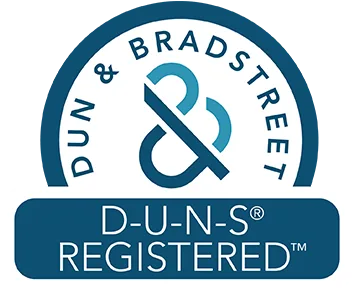LifePathNav is a secure, mobile-first platform developed by Inflack to support care coordination across Australia’s disability and aged care sectors. Designed with a strong focus on accessibility, security, and regulatory compliance, LifePathNav simplifies the way participants, carers, specialists, and service providers communicate, manage services, and share critical information.
The platform enables smarter, NDIS-compliant service delivery by combining secure document handling, AI-powered invoicing, and real-time collaboration into one unified solution. It is accessible via mobile and web, and built to support individuals, families, and organisations engaged in both disability and aged care.
Client Overview
VitalBridge Pty Ltd is an Australian care technology company focused on building inclusive digital solutions for the disability and allied health sectors. With a growing demand for tools that empower care recipients and providers to collaborate more effectively, VitalBridge envisioned a product that was secure, scalable, and easy to use across a diverse user base.
They wanted a solution that could support NDIS-compliant service delivery, ensuring privacy, control, and traceability for every action taken by carers, participants, and professionals. VitalBridge partnered with Inflack to bring this vision to life, trusting our team to deliver a high-quality solution with robust technology and compliance readiness.
Challenges
VitalBridge identified several operational and compliance gaps that significantly limited the effectiveness of existing care coordination systems:
- Disconnected Communication: Care Coordinators were forced to rely on common unstructured channels that lacked reliability, making it difficult to manage service notes, reminders, appointments, or inter-role updates, resulting in delays and missed actions.
- Unsecured File Sharing: Documents like service agreements, invoices, and participant records were being exchanged across disjointed systems, without traceability or access control. In situations requiring verification—such as audits or plan reviews—data was difficult to retrieve, leading to costly errors and financial losses.
- Manual Invoicing: There was no reliable mechanism to log service hours, track therapist sessions, or generate accurate invoices. Human error in manual billing often led to rejected claims under NDIS compliance, delaying reimbursement and undermining provider credibility.
- Lack of Role-Based Data Control: Existing tools lacked structured access permissions, exposing sensitive data to unintended users or restricting relevant stakeholders from the information they needed.
- Service Management Gaps: Providers had no single system to create services, assign specialists, track support hours, discharge specialists, or log service-based documents and notes. Knowledge sharing was inconsistent, and service history lacked audit trails.
- Compliance Pressures: The platform needed to meet Australia’s Privacy Act 1988 while aligning with NDIS compliance protocols for data storage, access, and transparency.
Our Solution
Inflack developed LifePathNav as a mobile-first, cloud-native platform that enables seamless care coordination for disability and aged care. Built with Flutter for mobile, Next.js for the web, and powered by a secure backend architecture in Node.js, GoLang, and Python, the system brought together real-time communication, automated workflows, and NDIS-aligned service structures—all within a single platform.
Key solution components included:
- AI-Powered Invoicing Engine: Using session logs and provider rates, the system automatically generates NDIS-aligned invoices, minimizing manual input and reducing rejection rates. This process is supported by automated billing logic written in GoLang and Python.
- Service Lifecycle Management: Service Providers can define service types, assign or discharge Specialists, and track historical engagement with each Participant. Redis-backed caching supports real-time tracking, while Cassandra stores structured service data for scalability.
- Smart Folder-Based Storage: Documents are organised into Services, Finance, Personal, and Organisation folders—each secured by role-specific permissions, with End-to-End Encryption (E2EE) for all data in transit and at rest.
- Encrypted Communication Channels: Specialists, carers, and participants can exchange messages and notes through secure WebSocket-based messaging, with full audit logs enabled by MongoDB and time-based event tracking.
- Reminder & Notification System: Using gRPC and asynchronous scheduling, the system delivers service reminders, task alerts, and appointment confirmations across web and mobile interfaces—even when users are offline.
- Consent Management & Audit Trails: Each action (sharing, editing, viewing) is timestamped and tracked to support data privacy compliance and provider accountability.
- Offline Access: Cached access to essential records and reminders ensures service continuity, especially in rural or low-connectivity environments.
- Accessible, Inclusive Design: LifePathNav is WCAG-compliant, offering seamless user experience for people with varied physical, cognitive, or digital literacy needs.
- Cloud Infrastructure & Monitoring: Hosted on AWS (EC2, S3, KMS) with Kubernetes and Docker for container orchestration. The system is continuously monitored through Prometheus and Grafana, ensuring performance, uptime, and real-time diagnostics.
Results
The implementation of LifePathNav brought significant transformation across care coordination workflows:
- Collaboration: Unified communication and secure document sharing brought Participants, Carers, Specialists, and Providers onto a single, reliable platform.
- Efficient, Error-Free Billing: AI-driven invoicing accelerated claims and improved accuracy, aligning with NDIS documentation standards.
- Data Privacy and Compliance: Strong encryption, role-based access, and audit logs ensured the platform met Australia’s strict privacy laws.
- Operational Visibility: Providers gained full transparency over service histories, specialist assignments, and user activity.
- High User Adoption: With intuitive mobile interfaces, offline capabilities, and accessibility features, LifePathNav was well-received by users across all roles.
Enhanced Market Standing: VitalBridge positioned itself as a leader in compliant, digital-first care solutions by enabling service coordination without becoming a provider themselves.

